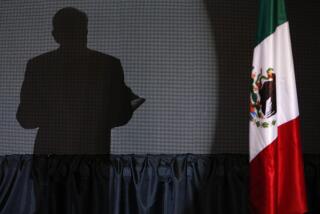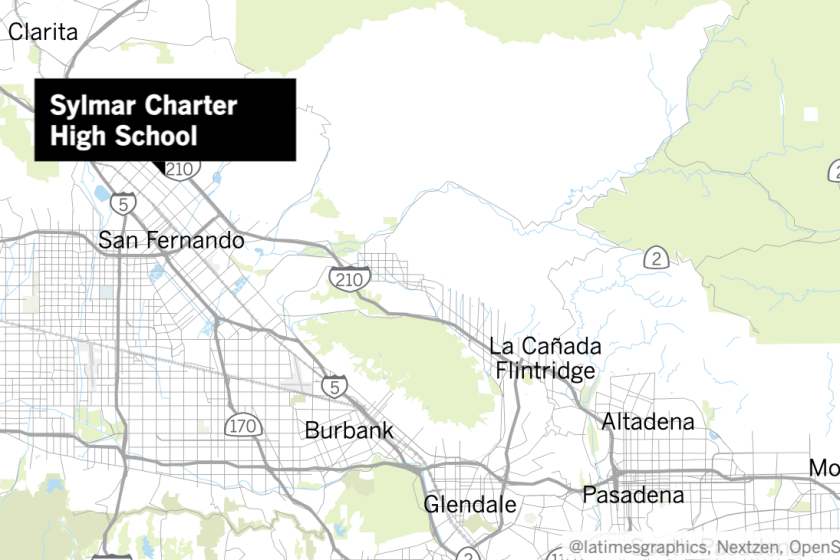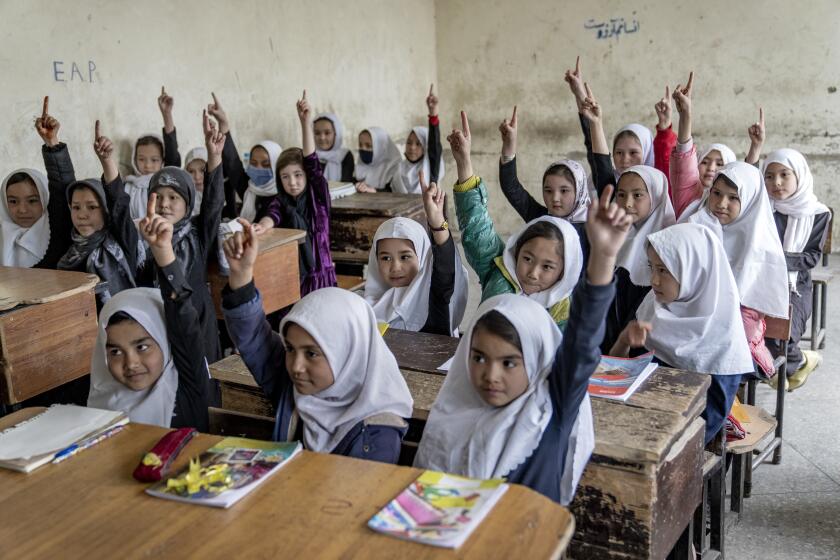Credibility Gap for Academic Decathlon
Why should anyone besides competing students and coaches care about the controversy surrounding Academic Decathlon?
This is more than a competition that consumes while enriching many of our lives. It gives the nation a chance to cheer for scholars instead of athletes. Successful teams contribute to community pride, and the participating students give us hope for the future.
Academic Decathlon promotes peer-teaching of small groups of students with varying academic standings in an interdisciplinary curriculum. It’s a beautiful thing to watch. The memories are so vivid: the immigrant hugging her grandson with medals hanging around his neck and telling him, “This is why I came to America”; the underachieving C student who, instead of dropping out, rides his experience into a college scholarship.
Those of us who are passionate about Academic Decathlon are trying to salvage a program that many have come to love. Hard-working students and coaches over the past 20 years built the prestige and reputation of this program. We worry that greed-based corporate decisions that are pedagogically unsound are lowering academic standards and destroying the competition. We are also concerned about serious conflict-of-interest issues.
This year’s Academic Decathlon students were subjected to memorizing plagiarized, mistake-plagued, falsely advertised, trivial information contained in expensive curriculum materials sold by United States Academic Decathlon. Administering what has been called the premier academic competition in the nation, USAD is a nonprofit organization that in monopolistic fashion raked in millions of dollars from shoddy materials teams had to purchase--at taxpayer and student expense--to compete.
Coaches and students found literally hundreds of errors. If USAD was notified, it often issued corrections on its Web site. This forced students to re-memorize facts. Then there were errors in the corrections. Students didn’t know which information competition tests would utilize. Coaches were put in the position of telling students to intentionally give a wrong answer if the question appeared to come from USAD’s wrong information.
As USAD’s level of incompetence and questionable ethics increased in each of the last three years, hundreds of complaints were sent by coaches to the organization’s executive director, James Alvino. A basic message, from coaches nationwide: What had been a research-based competition through which students gained valuable skills for college and the workplace had become a trivial-pursuit contest through which isolated students memorized canned and plagiarized information. In spite of annual promises from the executive director that things would be better, things continued to deteriorate.
Although there are mountains of problems at USAD, many coaches and students requested three simple things:
* Eliminate USAD’s profit-driven curriculum books and boxes of practice test questions and return to a research-based curriculum.
* Release materials in May, as had been done for 20 years.
* Have USAD concentrate on writing relevant and accurate competition tests.
USAD conducted closed-door meetings to “investigate” the complaints, and then “embargoed” (USAD’s word) all information from those meetings. On April 15, USAD issued what it termed a “compromise” for next year’s competition. This includes having some competition tests with 50% of the questions taken from USAD curriculum booklets and 50% from outside research (a position taken by Alvino in a Jan. 6 meeting), and a materials release date of August (a change Alvino announced to the dismay of coaches in a September workshop).
USAD would say that teams can compete without purchasing any materials, but that is like telling the baseball team it can play without bats and gloves. And this year, study guides that were free last year are offered if the novel and music CDs are purchased first from USAD. Are teams that save money by getting the novels from libraries denied the “free” study guide?
A close inspection of the compromise reveals what should be every Academic Decathlon coach’s worst nightmare. In the past, successful decathlon teams had a full-time job of doing research and peer-teaching. This year, teams had a full-time job of memorizing mindless trivia. Next year, they will have to combine both of those tasks and spend more money doing so. And they can’t start until August. This is clearly a step in the wrong direction.
Coaches continue to be concerned that:
* USAD generates enormous sums of money from the sale of a multitude of merchandise as well as from corporate sponsors and team registration fees, yet will not publicize its current assets and liabilities.
* USAD admits that “the number of errors this year has been completely unacceptable,” but continues to refuse to issue any refunds.
* USAD denies coaches any opportunity to check tests or answer keys for accuracy after competitions, even though scholarships and medals are determined by the tests, and even though they have become so infamous for errors that confidence in their integrity has evaporated.
USAD has a long way to go regain the trust of students and coaches it lost because of its lack of credibility and integrity.
Even so, it continues to make decisions in secrecy to the detriment of its participants and rarely responds to coaches.
The teachers of Academic Decathlon teams against whom I have competed at the county, state and national levels are among the finest educators I have had the privilege of knowing. They are highly ethical educators who care passionately about students and are willing to sacrifice much for the their benefit. USAD should value rather than reject these teachers’ input, respect rather than denigrate their commitment.
USAD should return to the days when the sole criterion of its decisions and policies was the well-being of students.
More to Read
Sign up for Essential California
The most important California stories and recommendations in your inbox every morning.
You may occasionally receive promotional content from the Los Angeles Times.






